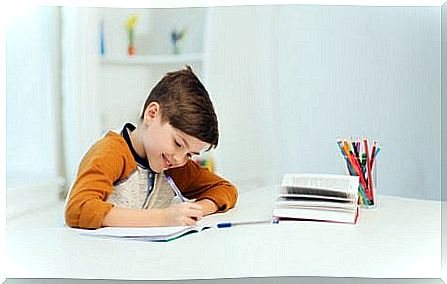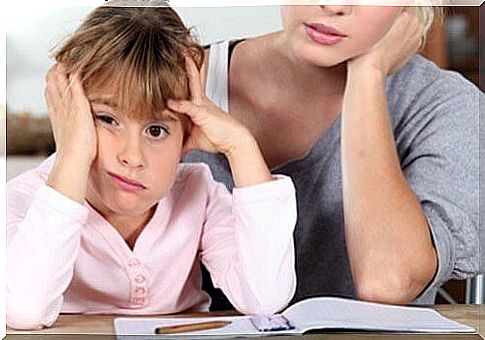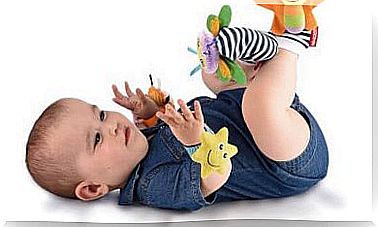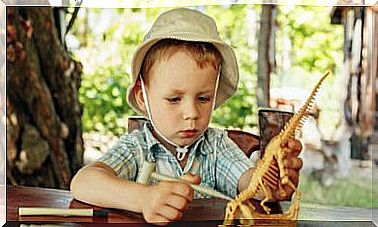Children’s Learning Problems: Causes And Solutions

Children’s learning problems can be related to a series of neurobiological disorders that directly affect the way the brain receives, processes, stores, responds and produces any information.
Children with learning disabilities may have difficulty writing, concentrating, listening, speaking, reading, spelling, and even doing math.
Learning problems can also be caused by the attention deficit that can present itself along with problems with memory, coordination, social skills and lack of emotional maturity. Despite this, in fact, children with a learning disability are often very intelligent. What happens is that the brain processes information differently, causing differences between intelligence and school performance.
Causes of children’s learning problems
Studies have determined that genetic factors are among the causes of learning problems in children. For example, recessive chromosomes that cause specific reading problems. Neurological dysfunctions are also considered another significant cause of learning difficulties.
According to other research, there are also some pre, peri and postnatal factors, or even complications during pregnancy. Other studies determine that older mothers and fathers are more likely to have a dyslexic child. However , even if the child has this problem, there are therapies that can improve their learning.

Characteristics of a child with learning problems
Learning problems can be of the type called compulsory or over-attention. In this case, children tend to pay more attention to just one thing for a long period of time and ignore other stimuli that are also important for their development.
On the other hand, there are children who have an impulsive distraction or low attention span. In this case, in turn, children tend to focus their attention for a short period of time on one thing and quickly shift their attention to another.
These are some of the characteristics of a child with learning disabilities:
- Difficulty understanding and following instructions
- Difficulty remembering what people said.
- Has not mastered basic reading, spelling, writing and math skills.
- Difficulties in distinguishing between right and left.
- It can confuse the order of numbers.
- You don’t have a lot of hand coordination to walk, do sports or do simple activities like tying your shoelaces.
- You can easily lose school supplies.
- Has difficulty in relation to verb tenses. For example, differentiate between “yesterday” and “today”.
- It may confuse some words.
- Inattention is another learning problem in children.

Solutions to the Learning Problem
To find out if the child really has learning problems or not, it is necessary to take him to a specialist to be able to determine more precisely. If so, a psychiatrist can also help you assess and work with school professionals to run some tests.
Below we will list some solutions that can help address children’s learning problems:
- Children need to feel loved, understood and respected to make the learning process easier.
- They must receive affection, affection and physical closeness. This helps build confidence and clear up doubts about what you’ve learned.
- Games, games, and other practical activities are very effective for learning.
- It is necessary to encourage children to play with others and establish friendships.
- They should feel free to make mistakes and ask questions about anything. That way you can understand more clearly.
- Parents must treat them fairly and with consideration.
- Boundaries and rules must be well established. Even when they are wrong, children should be treated with respect and care.
- It is important for children to learn to face their emotions, frustrations and fears.
- It is essential that the child is exposed to some difficult situations so that they can overcome their fears.
- Parents should allow children to cry freely and express their feelings.
- They must be trusted by their parents.
- When they do a good deed, it ‘s important to praise them and encourage them to keep making progress.
- If they fail, parents must teach that defeat is a part of life and that it is necessary to persevere.
It is essential to strengthen the child’s self-confidence for healthy development. This will help parents and other family members to better understand the problem and deal with the child who has some learning problems.









